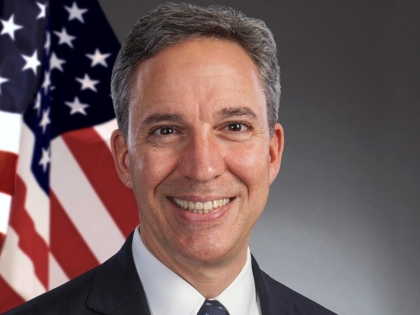
From the Desk of Senator Jack M. Martins
Jack M. Martins
November 1, 2011
-
ISSUE:
- Higher Education
Honesty Still Matters
When I was elected Senator, I would have never guessed that I’d participate in a hearing regarding high school cheating. Yet this past week, there I was with the Senate Higher Education Committee, examining the actions of several high school students who allegedly paid a former student to take the SAT college entrance exam for them.
By way of background, students aren’t required to take the SAT in their home school where they are known to the test proctors. In order to accommodate the large numbers taking the exam, students can use any test center in the country, provided they present home school identification. That’s why a former Great Neck student was apparently able to use fake ID to take the exam for current students. In turn, they would pay him a dollar per point with his average score somewhere just above 2000.
Now if you’re like me, the first question is, “Where in the world do young people find $2,000?” Once past that, most people want to know how they were caught and what’s being done now.
Thanks to a conscientious group of school administrators who had heard a rumor, it was immediately investigated and stopped. School administrators and members of the board of education are working with College Board and ETS, the companies that administer the SAT to make sure it doesn’t happen again. Their participation in Senate hearings helped draw the attention of other districts to the security flaws identified.
The hearing also afforded educators on the front lines the opportunity to chime in with common-sense solutions. For example, it was suggested that students only take the SAT in their home schools when possible, where identities can be verified. If that's not possible it was recommended that home schools e-mail identity photos to the respective testing centers. There were others, each with pros and cons, but we’ll have to wait and see if they’ll be implemented. For now, College Board and ETS are hiring a security firm to conduct a comprehensive review. The one thing I can assure you is that there will be proposed legislation that tightens security and penalizes cheaters regardless. In the meantime, we’ll work with all parties to insure a level-playing field.
In preparing for this hearing, I discovered that “academic dishonesty” has become a national epidemic of sorts. Our wireless devices now make information retrieval possible at any time and almost anywhere and educators throughout our country are struggling to combat the trend. While we look for practical solutions, we might also ask ourselves if it’s indicative of a larger trend. Truth be told, we see its evidence everywhere. We read of corporations that skirt their taxes, doctors and patients who commit Medicaid and Medicare fraud, and athletes who abuse performance-enhancing drugs to give them an edge. Just this week we heard of Long Island Rail Road employees who bilked the government for millions in phony disability payments. No matter what we call it, it’s still cheating.
Young people mirror that which they see around them. We shape them, not the other way around. So have we, as a society, somehow made cheating acceptable? Hopefully not, but when those with integrity do stand up, like the administrators and educators have here, we should support their conviction and not let it get mired in red tape. Honesty and fairness are the cornerstones of civil society - let's fight for what's right.
Share this Article or Press Release
Newsroom
Go to NewsroomState senators hosts domestic violence awareness panel
October 30, 2023
Mass Bomb Threats To Synagogues Impact Syosset
October 10, 2023